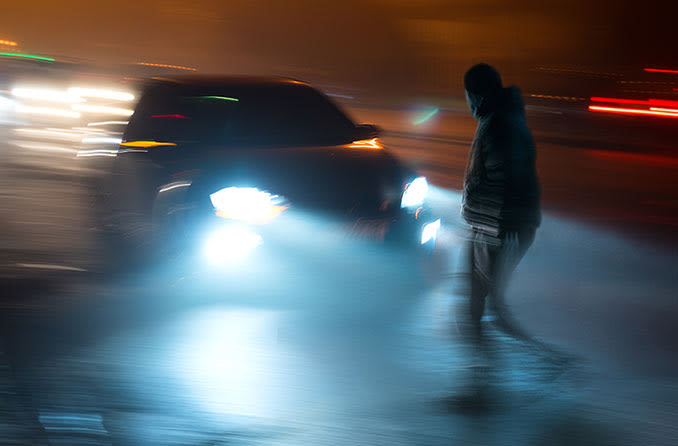Night driving tips for older motorists: Glasses for night-time driving

One of the most challenging visual tasks is driving at night.
If you are an older driver and are concerned about your night driving vision, here are some suggestions to make sure your night vision is as clear as possible:
Have a comprehensive eye exam at least every two years. Update your glasses if there is even a minor change to your eyeglass prescription.
If you feel your vision has changed since your last eye exam, schedule another exam immediately.
Tell your optician about any problems you experience on the road at night so that you can undergo specialised testing, such as evaluation of your visual field or contrast sensitivity.
If you have diabetes, get your eyes examined annually or as frequently as your optician recommends. Follow your doctor's recommendations regarding diet, blood sugar control, insulin and self-care to reduce the risks of diabetic retinopathy, which can progress to severe vision loss without warning.
FIND AN OPTICIAN: An optician can assess your vision and possibly help you see better at night. Find an optician near you.
Ask your optician to prescribe glasses for driving that may help you see better on the road from sunset to sunrise. For example, lenses with anti-reflective coating increase visibility and reduce glare.
If you are a candidate for cataract surgery, ask your surgeon about replacing your clouded natural lenses with an aspheric intraocular lens. These artificial lenses are engineered to provide better contrast sensitivity and crisper vision than would be possible with the implantation of traditional, spherical intraocular lenses.
Be extra cautious when approaching junctions. A 2018 University College London study found that nearly 50 percent of the serious and fatal accidents in London take place in 5 percent of road junctions.
Expert advice for driving safely
Here are additional safe night driving tips, prepared by the Royal Society for the Prevention of Accidents (RoSPA):
Use your lights appropriately.
Don't stare at oncoming vehicles.
Keep windows clean.
Watch out for children, cyclists and animals.
Get your eyes tested.
Don't get behind the wheel when tired.
Hone your night-driving skills.
And just in case... carry night driving essentials (torch, blanket or warm clothing).
If you are still uncomfortable driving at night after following the recommendations above, have a friend or family member (who has a valid driver’s licence) drive.
Or, for short trips, leave the car at home and call a ride-sharing service or use public transport.
Page published on Tuesday, 25 June 2019






